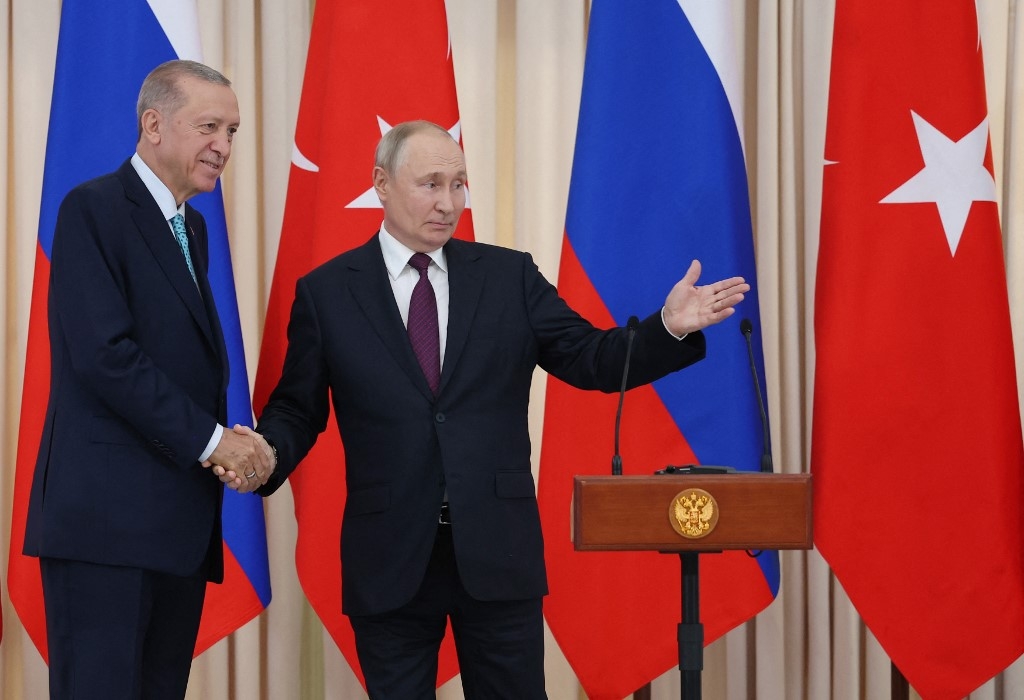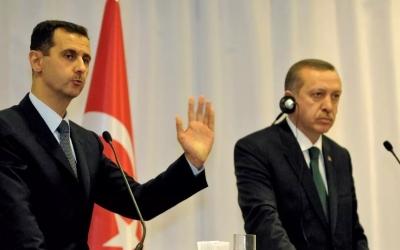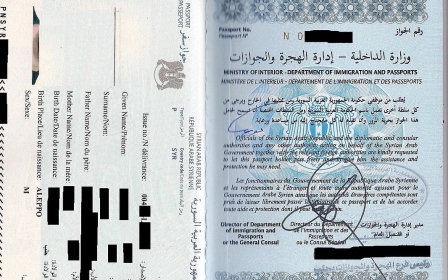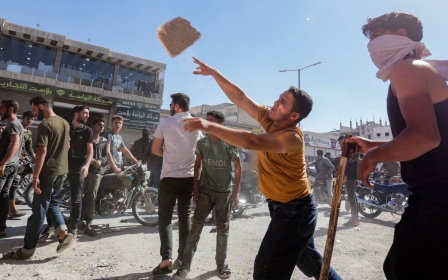Putin opposes Iraq as venue for Erdogan-Assad meeting

Russian President Vladimir Putin is against the idea of Iraq hosting a high-level reconciliation meeting between Turkey and Syria in Baghdad, sources familiar with the issue have told Middle East Eye.
Since April, Iraqi Prime Minister Mohammed Shia al-Sudani has intensified efforts to broker a deal that would see Ankara re-establish diplomatic ties with Damascus.
Turkey severed formal ties and closed its embassy in 2012 following the outbreak of civil war in Syria, during which western allies, including Ankara, supported the opposition against the administration of President Bashar al-Assad.
With Turkey hosting around four million refugees, including 3.6 million Syrians, mounting economic difficulties have increased tensions domestically.
Ankara believes that now is the time to initiate talks with Damascus to facilitate the eventual return of three million Syrian refugees, and to form an alliance against Kurdish armed groups in eastern Syria.
New MEE newsletter: Jerusalem Dispatch
Sign up to get the latest insights and analysis on Israel-Palestine, alongside Turkey Unpacked and other MEE newsletters
Meetings between Turkey and Syria's defence ministers and intelligence chiefs, mediated by the Russians, were held in Moscow in 2022 and 2023. But they did not result in a breakthrough due to Assad’s preconditions, which included the total withdrawal of Turkish forces from northern Syria before any negotiations could take place.
Umit Nazmi Hazir, a Moscow-based expert on Russian affairs, noted that Assad was reluctant to engage with Turkish President Recep Tayyip Erdogan because he suspected that Ankara could use such a meeting to its advantage during last year's crucial presidential election in Turkey.
"But now the situation has changed. Syria's worsening economy is also a factor in this," Hazir told MEE.
Iraq's progress
This year, Sudani's Iraqi government has made significant progress with its own mediation efforts, convincing the Assad administration to drop its preconditions and demand only a commitment from Turkey for an eventual withdrawal from Syria.
"Once the security of our borders is fully ensured, we may consider withdrawing if necessary," said Turkish Defense Minister Yasar Guler in June.
Assad responded positively to these messages, expressing an openness to engage with Ankara without making any demands. Erdogan welcomed Assad’s statements, encouraging Damascus to end the rift.
At the end of June, Ankara opened a border gate to Syrian government-held areas and began clearing an important highway that could connect Turkey to Syria and the Gulf.
Sources speaking to MEE suggest that Syria and Turkey would conduct negotiations in Baghdad under the auspices of the Iraqi government. Sudani, however, aims to also host the first personal meeting between Erdogan and Assad in over a decade - and to do it in Baghdad.
A former Turkish official noted that Sudani believes he could use such a meeting to bolster his standing with the Iraqi public before parliamentary elections scheduled for next year.
"However, Putin isn’t in favour of such an idea," said a source familiar with Russian thinking. "He supports a meeting in Turkey."
The source suggested that this is why Erdogan publicly invited Assad for a meeting in Turkey under Russian mediation.
"Putin has an approach to holding meetings in Turkey. The Iraqi prime minister also has his views on this issue," Erdogan said earlier this week.
Hazir believes that Russia doesn’t want to lose its role in talks to facilitate the normalisation of relations, having been involved from the beginning.
'For Russia, the realisation of the normalisation process under Iraq's leadership carries the risk of other actors getting involved'
– Umit Nazmi Hazir, expert on Russian affairs
"At the same time, for Russia, the realisation of the normalisation process under Iraq's leadership carries the risk of other actors getting involved," he said.
Many experts have previously suggested that Iran and Russia, the two main backers of Damascus, are vying for influence inside Syria.
A senior Iranian official told his counterparts in Ankara last month that they too were pressuring Damascus to lift its preconditions for dialogue with the Turkish government, according to a person close to the discussions. The source suggested that the Iranians did not want to be sidelined while Iraqi efforts were making headway.
Hazir said that while Iraq might be a more neutral actor to facilitate reconciliation talks, Russia has more influence to resolve outstanding issues.
"Russia, which is dealing with the Ukraine problem, wants the Syrian crisis to be solved and its burden to be eased; but it wants to do this by increasing its domination in Syria," he said.
Middle East Eye delivers independent and unrivalled coverage and analysis of the Middle East, North Africa and beyond. To learn more about republishing this content and the associated fees, please fill out this form. More about MEE can be found here.





